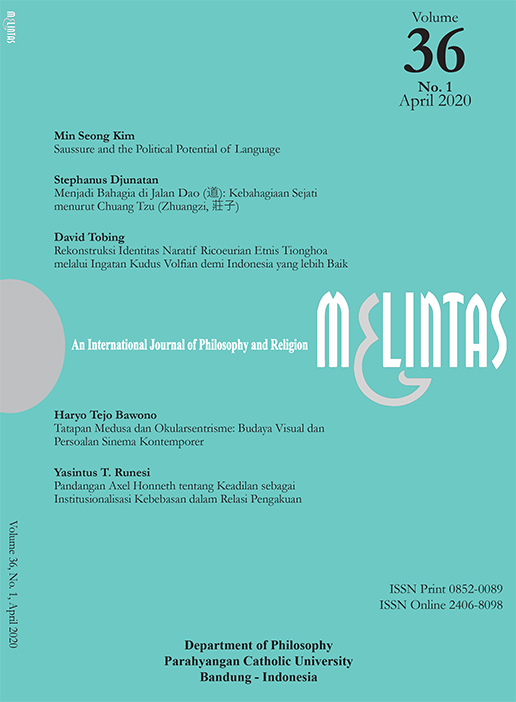Saussure and the Political Potential of Language
DOI:
https://doi.org/10.26593/mel.v36i1.4678.1-23Keywords:
structural linguistics, structuralism, poststructuralism, political theory, hegemony, discourse theory, Ferdinand de Saussure, Ernesto LaclauAbstract
Although the linguistic theory of Ferdinand de Saussure is widely recognised as the forerunner of structuralism, it is often treated in the humanities and social sciences today as a stepping stone toward more sophisticated, generalised semiotics and theories of discourse. As a result, social and political implications of Saussure’s original conception of language have frequently been underestimated. Drawing from the classic lecture Course in General Linguistics and the fragmented notes collected in Writings in General Linguistics, this article offers a reconstruction of the social and political dimensions that were present, albeit in an inchoate form, within Saussure’s own theorisation. To act as a foil to the reconstructed Saussurean position, this article calls upon an essay that charts the historical development of the concept of discourse authored by Ernesto Laclau, who is perhaps the most politically oriented thinker among the many inheritors of the Saussurean legacy.Downloads
Published
2021-03-17
Issue
Section
Articles
License
MELINTAS applies the Creative Commons Attribution (CC BY NC) license to articles and other works we publish. If you submit your paper for publication by MELINTAS, you agree to have the CC BY NC license applied to your work.


